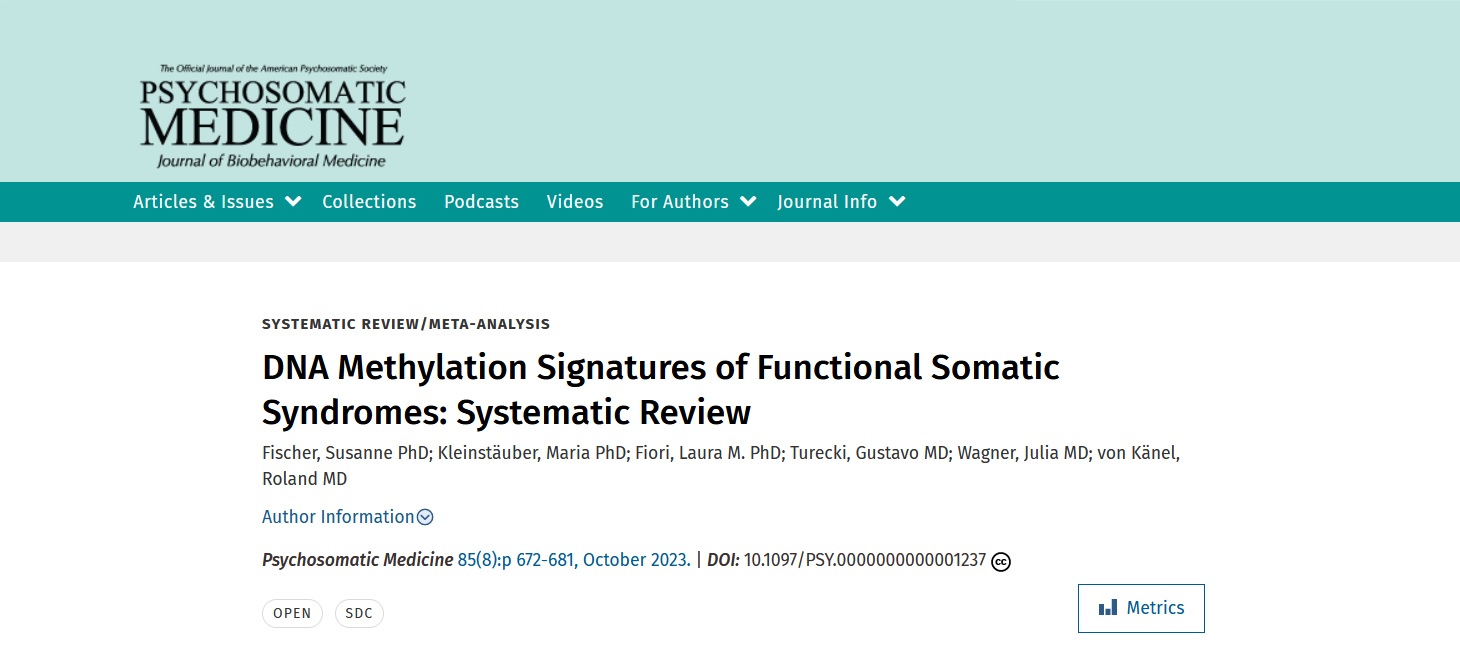Functional somatic syndromes (FSS) are characterized by medically unexplained symptoms, which cause significant distress and impairment. Among the most prominent FSS are chronic fatigue syndrome, characterized by fatigue and flu-like symptoms; fibromyalgia syndrome, characterized by widespread pain. It is crucial to gain a deeper understanding of the pathophysiological processes that underlie these debilitating illnesses. The pathophysiology of FSS is multifactorial and has spurred extensive research in the past decades.
Stress (e.g., childhood trauma, chronic stress, critical life events) and alterations in stress-responsive bodily systems represent significant factors in the development and maintenance of FSS. The most frequently studied stress-responsive bodily system is FSS, likely due to its pivotal role in regulating processes that can contribute to the experience of medically unexplained symptoms.
Epigenetic phenomena, which represent relatively stable biological alterations that can manifest as a result of environmental factors, including stress, have increasingly attracted the attention of researchers in FSS. The best-understood epigenetic phenomenon is DNA methylation, which can be reliably measured in various tissues, including whole blood, peripheral mononuclear cells (PBMCs), and specific cell types, such as T cells.
In brief, DNA methylation refers to the process of methyl molecules attaching to the 5′ carbon position of cytosine residues, which are often present in the promoter region of genes and have functional implications regarding gene expression. In these regions, high levels of methylation are mostly associated with reduced gene expression.
As extreme and/or persistent stress can induce chemical modifications of DNA methylation, the question arises of whether DNA methylation may be systematically altered in conditions in which stress is involved (such as FSS), and contribute to symptoms such as fatigue and pain via altered gene expression.
Sixteen studies (N = 957) were included in this paper. In candidate-gene studies, specific sites within NR3C1 were identified, which were hypomethylated in individuals with chronic fatigue syndrome compared with healthy controls. In genome-wide studies in chronic fatigue syndrome, a hypomethylated site located to LY86 and hypermethylated sites within HLA-DQB1 were found. In genome-wide studies in fibromyalgia syndrome, differential methylation in sites related to HDAC4, TMEM44, KCNQ1, SLC17A9, PRKG1, ALPK3, TFAP2A, and LY6G5C was found.
Individuals with chronic fatigue syndrome and fibromyalgia syndrome seem to be characterized by altered DNA methylation of genes regulating cellular signaling and immune functioning. In chronic fatigue syndrome, there is preliminary evidence for these to be implicated in key pathophysiological alterations, such as hypocortisolism and low-grade inflammation, and to contribute to the debilitating symptoms these individuals experience.
Reference
Fischer S, Kleinstäuber M, Fiori LM, Turecki G, Wagner J, von Känel R. DNA Methylation Signatures of Functional Somatic Syndromes: Systematic Review. Psychosom Med. 2023 Oct 1;85(8):672-681.
06-03-2024 updated.

